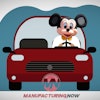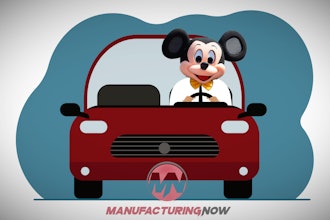In this episode, a smarter showerhead and an IoT super pact.
Shower Power
When California officials called on residents to curb their water use amid an historic drought, one suggestion including taking shorter showers.
But a San Francisco start-up could make that unnecessary.
Nebia has developed a unique showerhead that breaks water droplets into smaller pieces, which offers users a mist-like spray. The result, the company says, is an up to 70 percent decrease in the amount of water used during the average shower.
Nebia invited prominent would-be investors to try it out for themselves, literally. Apple CEO Tim Cook and Google chairman Eric Schmidt are among those who have showered and signed on.
The company hopes to raise enough money through a Kickstarter campaign to ship its first $400 a pop showerheads by the spring of 2016.
IoT Alliance
This week, Online Trust Alliance, or OTA, released its Internet of Things Trust Framework, the first global effort to address IoT risks comprehensively.
With members that include ADT, Microsoft and nearly 100 other experts, the nonprofit OTA’s framework presents guidelines for IoT manufacturers, developers and retailers to follow when designing, creating, adapting and marketing connected devices in two key categories: home automation and consumer health and fitness wearables.
This task force concluded that the safety and reliability of any IoT device, app or service depends equally on security and privacy, as well as a third, often overlooked component: sustainability.
Without addressing sustainability, devices will become more prone to hacking over time allowing hackers to remotely control these devices. This concern, first demonstrated with baby monitors and fitness wearables, will likely be a problem again.
So, What Do You Think?
OTA is also developing testing tools and methodologies to formalize the IoT Trust Framework with scoring criteria — leading to a voluntary Code of Conduct and a forthcoming certification program.
Do you think OTA is taking the right approach to IoT products by creating the standard? Or do you think this could stifle innovation, acting more as a regulation rather than a safeguard?
Email us or leave your comments below.
That’s all the time we have for today, but check out our sites every Tuesday and Thursday for your next Manufacturing Minute.






















